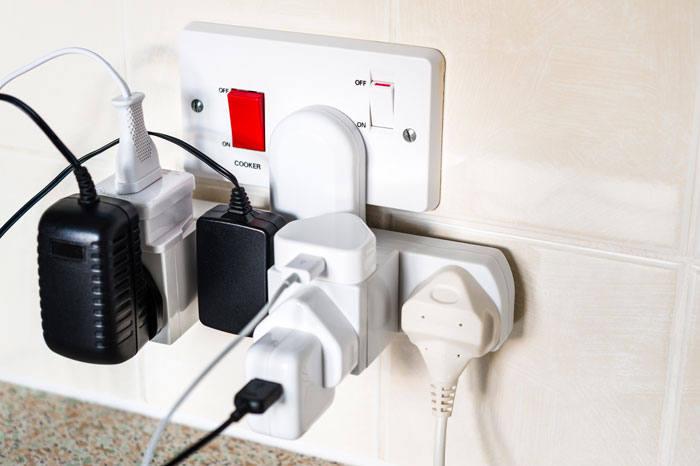Top Electrical Safety Tips
Electricity is an essential part of modern life, but it also comes with risks. Understanding and following basic electrical safety principles can protect your home and family from potential hazards. In this article, we'll share our top electrical safety tips, specifically tailored for homes in the UK.

1. Regularly Check Your Wiring
One of the most critical aspects of electrical safety is ensuring your home's wiring is up to standard. In the UK, it's recommended that homeowners have their wiring inspected by a qualified electrician at least once every 10 years. Signs of faulty wiring include frequent blown fuses, flickering lights, and a burning smell near outlets or switches. If you notice any of these issues, contact an electrician immediately.
2. Use RCD Protection
A Residual Current Device (RCD) is a life-saving device that protects against electric shocks and reduces the risk of electrical fires. In the UK, it’s a legal requirement for all new circuits in a home to be RCD protected. If your home doesn't have RCD protection, consider having an electrician install one. Test your RCD regularly to ensure it's functioning correctly.
3. Avoid Overloading Sockets
Overloading sockets is a common cause of electrical fires. Each socket in a UK home is typically rated for a maximum of 13 amps. Plugging too many high-wattage devices into a single socket can exceed this limit, leading to overheating and potential fires. Use extension leads sparingly and ensure they are fitted with a fuse to protect against overload.

4. Keep Electrical Appliances Away from Water
Water is a conductor of electricity, so keeping electrical appliances away from wet areas is crucial. In the bathroom, ensure that light switches are either outside the room or fitted with a pull-cord. Also, only use appliances designed for bathroom use, such as shaver sockets. In the kitchen, keep kettles, toasters, and other appliances away from the sink.
5. Unplug Unused Appliances
Unplugging appliances when they are not in use is a simple yet effective way to prevent electrical fires. This not only saves energy but also reduces the risk of overheating and potential faults. For devices that remain plugged in, such as your TV or computer, consider using a surge protector to guard against voltage spikes.
6. Ensure Proper Lighting Installation
Lighting installations should always be carried out by a qualified electrician. In the UK, Part P of the Building Regulations requires that certain electrical work in the home be carried out by a competent person. This includes installing new lighting circuits or working in special locations like the bathroom. Proper installation not only ensures safety but also improves energy efficiency.
7. Use the Correct Fuses
Every plug in the UK must be fitted with a fuse. The fuse protects the appliance by breaking the circuit if too much current flows through it. Using the correct fuse for your appliance is crucial. For example, a standard lamp might require a 3A fuse, while a kettle may need a 13A fuse. Always check the appliance's manual to determine the correct fuse rating.
Conclusion: Prioritise Safety in Your Home
Electrical safety should never be taken lightly. By following these tips and ensuring your home complies with UK electrical standards, you can significantly reduce the risk of accidents and keep your family safe. For any electrical work, always consult a qualified electrician. Safety starts with awareness and taking the right precautions.
For more insights into home safety and electrical tips, read more of our blogs here.
Have specific questions about your home's electrical safety? Contact us for expert advice and services.